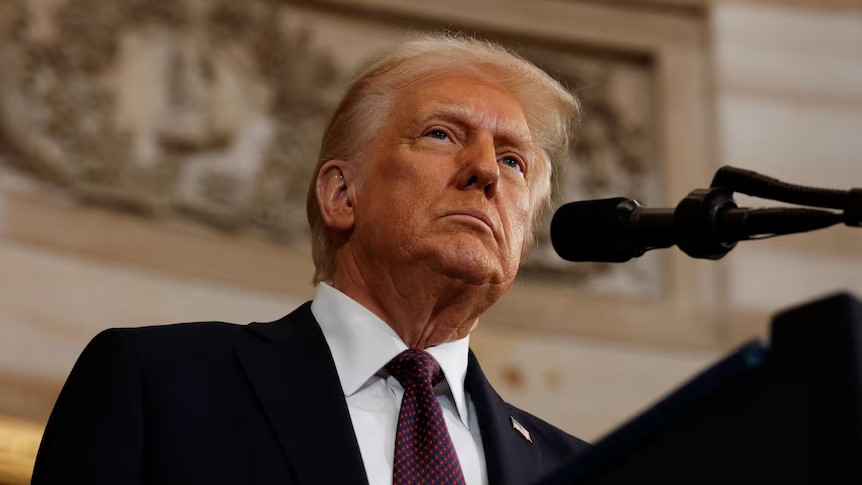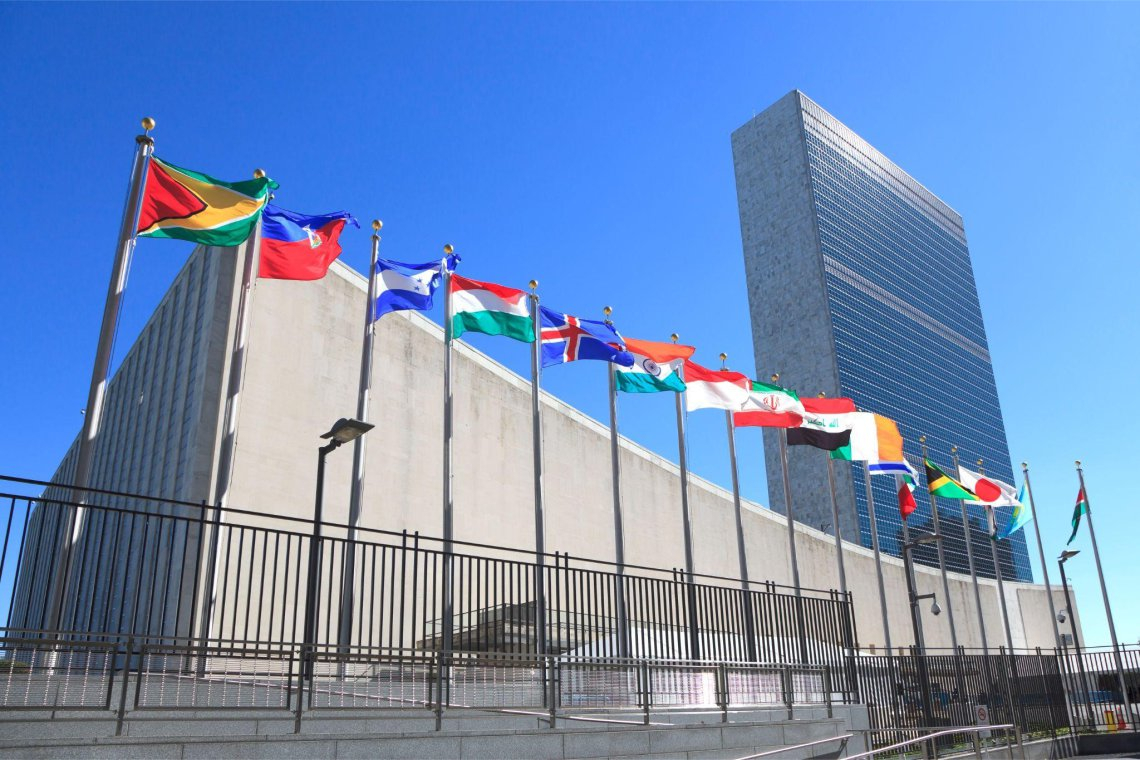Twenty-one years after their initial petition was largely overlooked, the Sulu claimants are once again seeking recognition from the United Nations. Image source: New York, NY, USA - Headquarters of the United Nations: United Nations is an intergovernmental organization that aims to maintain international peace and security. (n.d.). Adobe Stock. https://as1.ftcdn.net/v2/jpg/03/76/80/78/1000_F_376807843_D8QO5f6WuXu80peRWLdzWVeJx03G7UUB.jpg
Evidence indicates that the 1915 treaty is defunct, and seeking support from the current U.S. administration may not align with the best interests of the Sulu people.
The Sultanate of Sulu's recent initiative to seek Chinese and U.S. endorsement for its 2004 United Nations petition has reignited discussions about historical agreements and their current relevance. Central to this discourse are the 1405 and the 1915 Agreements. While scholarly sources have already revealed the illegalities and limitations of the 1405 China-Sulu Agreement, the 1915 Carpenter-Kiram Agreement deserves further reexamination in an academic forum.
Some contemporary sources argue that the 1915 Carpenter-Kiram Agreement remains valid and includes provisions for U.S. protection over certain territories. However, historical evidence indicates that the agreement is defunct, and seeking support from the current U.S. administration may not align with the best interests of the Sulu people.
The Carpenter-Kiram Agreement and the Decline of the Sultanate's Sovereignty
Signed in 1915 between the U.S. government and Sultan Jamalul Kiram II, the Carpenter-Kiram Agreement marked a significant shift in the political landscape of the Sulu Archipelago. Through this agreement, the Sultan relinquished all political power over territories within the Philippines, recognizing U.S. sovereignty. In return, the Sultan retained his position as the spiritual leader of Islam in the region. This agreement effectively ended the Sultanate's temporal authority, integrating its territories into the American colonial framework.
Over time, geopolitical changes, including the transition of the Philippines from an American colony to an independent nation in 1946, rendered the Carpenter-Kiram Agreement obsolete. The agreement’s provisions were specific to the colonial context of the early 20th century and do not hold legal standing in the present-day geopolitical environment.
British and U.S. Government Records Confirm the Carpenter Agreement Further Weakened the Sultanate
The Carpenter-Kiram Agreement not only eliminated the Sultan’s authority over the Sulu Archipelago but also raised questions about his relevance to British North Borneo (Sabah). In March 1917, the Governor of British North Borneo noted in a letter to the British North Borneo Company (BNBC) that if Britain ever defaulted on its cession agreement, sovereignty over North Borneo could revert to the United States—not the Sultan of Sulu.
This speculation, however, was dismissed by BNBC, which clarified that the Carpenter Agreement only applied to American territory, not British-controlled Sabah. This correspondence suggests that even in 1917, British officials viewed the Sultan of Sulu as having no sovereignty over Sabah whatsoever.
By 1933, British authorities went even further, explicitly declaring that the Sultan of Sulu had "no authority in this territory" when he attempted to assert his position in Sabah. This statement demonstrates that, even before World War II, the British had officially dismissed the Sultanate’s claim to Sabah as invalid.
These records further weaken the modern Sulu claim, as they show that by the early 20th century, the Sultanate had already lost all political influence. Attempts to invoke the Carpenter-Kiram Agreement today ignore the fact that, even at the time, both British and American officials saw it as applying only to Sulu and not to Sabah.
A Dangerous Precedent for Foreign Influence
The historical erosion of the Sultanate’s sovereignty raises an important concern: inviting foreign powers to intervene in territorial disputes has historically resulted in the diminished autonomy of local rulers. The Madrid Protocol of 1885 and the Carpenter-Kiram Agreement of 1915 both serve as examples of how external involvement in Sulu’s affairs ultimately led to the Sultanate’s loss of political control.
Now, more than a century later, seeking U.S. endorsement under President Donald Trump could repeat history, but under even more concerning circumstances. Rather than securing political recognition, the Sultanate risks exposing the Sulu region to external interests that prioritize territorial expansion and resource extraction over local welfare.

United States President, Donald Trump, in his inaugural address (January 20, 2025). Image source: Chip Somodevilla. Reuters.
President Trump's Expansionist Agenda: Potential Implications for Sulu
In his recent inaugural address, President Donald Trump articulated an ambitious vision for America's future, emphasizing themes of "Manifest Destiny" and advocating for increased domestic oil production. He declared, "The golden age of America begins right now," signaling a renewed focus on national expansion and resource exploitation.
This expansionist rhetoric has been accompanied by proposals to extend U.S. territorial influence, including suggestions to acquire Greenland, reclaim the Panama Canal, rename the Gulf of Mexico to the Gulf of America, and to “take over” the Gaza Strip. Such initiatives reflect a broader strategy to assert American dominance and secure access to valuable resources.
In this context, seeking U.S. endorsement for the Sultanate's claims could reopen old wounds, making the Sulu region vulnerable to foreign influence that prioritizes exploitation over local well-being. The administration's "drill, baby, drill" approach to energy policy underscores a commitment to exploiting natural resources, potentially at the expense of environmental and cultural considerations.
…seeking U.S. endorsement for the Sultanate's claims could reopen old wounds, making the Sulu region vulnerable to foreign influence that prioritizes exploitation over local well-being.
Conclusion
After multiple legal defeats, the Sultanate of Sulu’s continued pursuit of international recognition appears to be a worthy last-ditch effort; however, seeking support from the current U.S. administration presents significant risks. The Carpenter-Kiram Agreement’s defunct status, along with British archival evidence confirming the Sultanate’s loss of political authority by 1917, further undermines the legitimacy of its claim to Sabah. Given President Trump’s expansionist agenda and resource-driven policies, U.S. backing would not only fail to serve the best interests of the Sulu people but would also reignite a cycle of foreign intervention that has historically weakened Sulu power.
REFERENCES
1915 Carpenter’s Agreement. (2016, March 22). https://suluonlinelibrary.wordpress.com/treaties-and-agreements-2/1915-carpenters-agreement/
Echeminada, P. (2025, January 3). Carpenter-Kiram Treaty included Sabah as U.S. protectorate, MSUM convenor claims. Daily Tribune. https://tribune.net.ph/2025/01/03/carpenter-kiram-treaty-included-sabah-as-us-protectorate-msum-convenor-claims
Echeminada, P. (2025, January 17). MSUM reminds Trump of American Monroe Doctrine in Sulu Treaty breach. Daily Tribune. https://tribune.net.ph/2025/01/17/msum-reminds-trump-of-american-monroe-doctrine-in-sulu-treaty-breach
Echeminada, P. (2025, January 25). Sultanate of Sulu to seek Trump endorsement of 2004 UN Petition. Daily Tribune. https://tribune.net.ph/2025/01/25/sultanate-of-sulu-to-seek-trump-endorsement-of-2004-un-petition
Gowing, Peter. G. (1974). Muslim-American relations in the Philippines. In P. G. Gowing & R. McAmis (Eds.), The Muslim Filipinos: Their history, society, and contemporary problems. Solidaridad Publishing House.
Hyman, L. (2025, January 20). Donald Trump says “Golden Age of America begins right now”; in inaugural address: all his major claims and pledges. People. https://people.com/donald-trump-2025-inauguration-speech-8776089?
Marston, G. (1971). International Law and The Sabah Dispute: A Postscript. Australian Yearbook of International Law, 8. https://www4.austlii.edu.au/au/journals/AUYrBkIntLaw/1971/8.pdf
Swan, J., & Haberman, M. (2025, February 5). Inside Trump’s Hastily Written Letter to “Own” Gaza. The New York Times. https://www.nytimes.com/2025/02/05/us/politics/trump-gaza-takeover.html?auth=login-google1tap&login=google1tap
Transcript: Why Big Oil is resisting Trump’s call to ‘drill, baby, drill.’ (2025, February 5). Financial Times. https://www.ft.com/content/0dd25bf4-cdec-444f-a078-6d9b70ed5bb4?
United States War Department. (1917). Annual report of the Secretary of War: Volume 3 (Chief of the Insular Affairs, Government of Puerto Rico, Philippine Commission). Government Printing Office.
York, B. B. I. N. (2025, February 1). ‘Ridiculous’: Trump plan even MAGA hates. News. https://www.news.com.au/world/north-america/us-politics/ridiculous-donald-trump-act-even-maga-hates/news-story/6ddd7f797a245f50400ed6517a17cde0?



